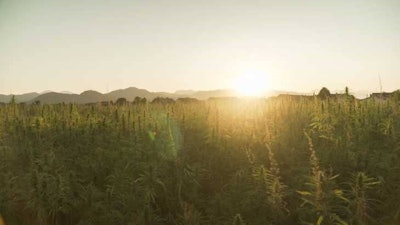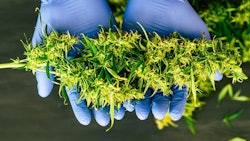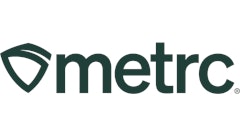
Around the country, state departments of agriculture are working to develop regulations and conditions that help hemp farmers in their states, while the Oct. 31 deadline looms for state plans and hemp producers to be in compliance with the 2018 Farm Bill. Much of the effort to help hemp growers has been focused on making public comments on the USDA’s interim final rule, which many find restrictive to the industry’s potential growth. In other states, such as Colorado and Illinois, additional effort has been placed on finding ways to further develop the hemp market to increase hemp farmers’ chances of success in a fledgling industry struggling to stabilize amidst regulatory limbo and market growing pains exacerbated by the novel coronavirus pandemic.
The Illinois Department of Agriculture (IDA), which oversees the state’s cannabis programs (including hemp), “has been diligently working to open markets for growers to sell their hemp,” Jerry Costello II, who was appointed in late February as the director of the IDA, commented in April in an IDA statement.
As part of that endeavor, the IAD “recently developed a policy allowing licensed hemp growers to sell product to licensed cannabis cultivators for use in medical and adult-use cannabis products,” Costello stated.
The policy, “Illinois Department of Agriculture Policy Regarding Hemp and Hemp Derivatives in Medical and Adult-Use Cannabis Products,” was announced March 23 by the IDA’s Bureau of Medicinal Plants.
Jeff Cox, bureau chief for medicinal plants, helped to facilitate the new policy and believes it opens the door to a significant new market opportunity for both hemp farmers and medical and adult-use cannabis businesses in the state, which “will be adopting the USDA 2018 Farm Bill regulations, effective Nov. 1,” he says.
“We harvested over 70% of the hemp that was planted in Illinois in 2019. That increased our supply of hemp dramatically,” Cox says. “By supply, I mean hemp that's just sitting in barns or in storage, or that may have been processed and is now some kind of a crude oil, distillate or isolate. While we had a lot of processors licensed, I don't think they expected the influx of hemp that we had. They're doing a great job, but they can only process so much so fast. We realized that we needed another market for the hemp that was grown in Illinois.”
So while hemp farmers will have the potential to sell into the legal medical and adult-use cannabis markets, Cox says that growers in those markets will also benefit.
“At the same time, we've got these cannabis growers, the marijuana growers, that are growing for medical patients and for the general public now, folks over 21 that can legally consume cannabis,” he says. “The biggest demand is for high-THC flower. These cannabis growers have to devote certain parts of their indoor marijuana operations to high-CBD strains, and the vast majority of that high-CBD marijuana is being extracted and then used in infused products along with THC. What we realized is that if we allow our marijuana processors to purchase the high-CBD hemp that was grown in Illinois, then that will free up grow space for them in their cannabis cultivation centers to devote more to high-THC flower.”
This was more than a theory, however. Cox says he was approached by several operators in the medical and adult-use markets who requested the possibility of opening up the hemp market in this way to provide them with sources of CBD.
“So we started doing some research into it. The interesting thing about our adult-use act, the Cannabis Regulation and Tax Act, is that the definition of cannabis specifically excludes industrial hemp as defined in and authorized under the Industrial Hemp Act,” he says. “For the marijuana sector, the rules required that all cannabis had to be grown within one of our licensed marijuana facilities, our cultivation centers. By saying that cannabis no longer includes industrial hemp, however, the cultivation centers can incorporate industrial hemp into their other cannabis products this way.
“So that's kind of where this came from. It opened up grow space for the cannabis growers, and it gave a new market to our hemp growers and our processors to be able to sell their product directly to the marijuana processors. They can either extract it or, if they are purchasing something that's already extracted, they can mix it in with their other infused products. The hope is that we provide a market to the hemp growers. We free up space in marijuana cultivation operations for more high-THC flower, which then allows more high-THC flower to make it to dispensaries for patients.”
“I think it’s a positive thing,” says Shawn Hauser, chair of the hemp and cannabinoid practice group at law firm Vicente Sederberg LLP, on states allowing hemp to be sold into legal medical and adult-use cannabis markets. “I think it moves the ball forward as far as hemp being treated as any other input, such as flour or chocolate, and that’s how it should be treated. I think people certainly go to marijuana stores to buy these types of products. There’s a market that is looking for lower-THC products. I think [hemp products] should have every retail avenue any other commodity can have.”
What Products Are Eligible?
Unlike Colorado’s new policy, which limits the sale of industrial hemp only into the legal marijuana market and specifies that “Plant material from an Industrial Hemp plant, such as flower, trim, fan leaves, or whole plant, is not considered Industrial Hemp Product,” Illinois’ policy intentionally includes any part of the hemp plant (“any intermediate or finished product made or derived from industrial hemp”). One restriction is that “hemp flower may not be sold to dispensaries,” per the policy.
Regarding the decision to allow for all parts of the plant to be sold into the medical and adult-use cannabis markets, Cox says, “We did that on purpose [for] our hemp processors that have taken in Illinois hemp and processed it. They're sitting on oil with no market. Now they can sell the oil directly to the cultivation centers for further processing; or our farmers can sell the flower or the biomass directly to the cultivation centers so that they can extract it themselves and incorporate that into the infused products.”
The policy, like the industrial hemp program, applies only to hemp with 0.3% or less Delta-9 THC (the primary intoxicating compound in cannabis). In November, when Illinois adopts the 2018 Farm Bill regulations, that will change to total THC, meaning Delta-9 THC and THCA (tetrahydrocannabinolic acid, the non-psychoactive acid form of THC found in the raw plant that can convert to THC).
While recognizing the new policy’s significant benefits, Illinois Hemp Growers Association President and CEO of the Rachel Berry laments that the policy was not put in place sooner. She points to her recent blog post on the association’s website, which reads, “Since the policy is operating under the current Illinois industrial hemp program, presumably this policy could have been implemented much sooner. The price for hemp CBD has dropped to the point where cultivation centers and dispensaries are looking at generous margins by taking advantage of a depressed market. If the policy was in place sooner, a lot more hemp would have found a home in 2019. Supply chains would have been established before the adult use rush of January 2020 and product would have flowed consistently, potentially mitigating some of the logjam of oversupply in August of 2019 and the following months.”
Instead, she writes, “What this policy means now is for a limited time only, there will be a short period of procurement by cultivation centers in Illinois who will buy up all the CBD distillate and isolate they will ever need at a bargain from any processor in the country who needs to liquidate their inventory.”
She also points out, however, that “criticism aside, this is a progressive and positive movement for the hemp industry. Giving hemp growers a path into dispensaries is a powerful statement and an economically beneficial tool.”
When asked if Cox anticipated challenges to the policy in November when the state has to shift from its 2014 Farm Bill pilot program to the 2018 Farm Bill program, he replied, “I don't think so. I see it possibly being a struggle for our hemp growers to deal with that total THC calculation; that is going to be tough for our growers. But that's why we wanted to stick with the pilot program through this growing season. So that our farmers can experiment a little bit more and find different genetics that will be compliant next year, under that total THC of 0.3%.”
As far as other efforts to open up new markets for hemp farmers in the Prairie State, Cox says, “I think the future for Illinois is fiber. Illinois was made for fiber. We've got massive row-crop fields, and big, flat, well-drained soil. Some of the best soil in the world is in Illinois,” he says. “Our geography and our topography lends itself well to fiber growing and processing. There are several fiber processors that are under construction right now in several parts of the state. Whether CBD or fiber, hemp has the potential to be a big part of the agriculture market over the next few years.”
Hemp Grower Associate Editor Theresa Bennett contributed to this article.



























